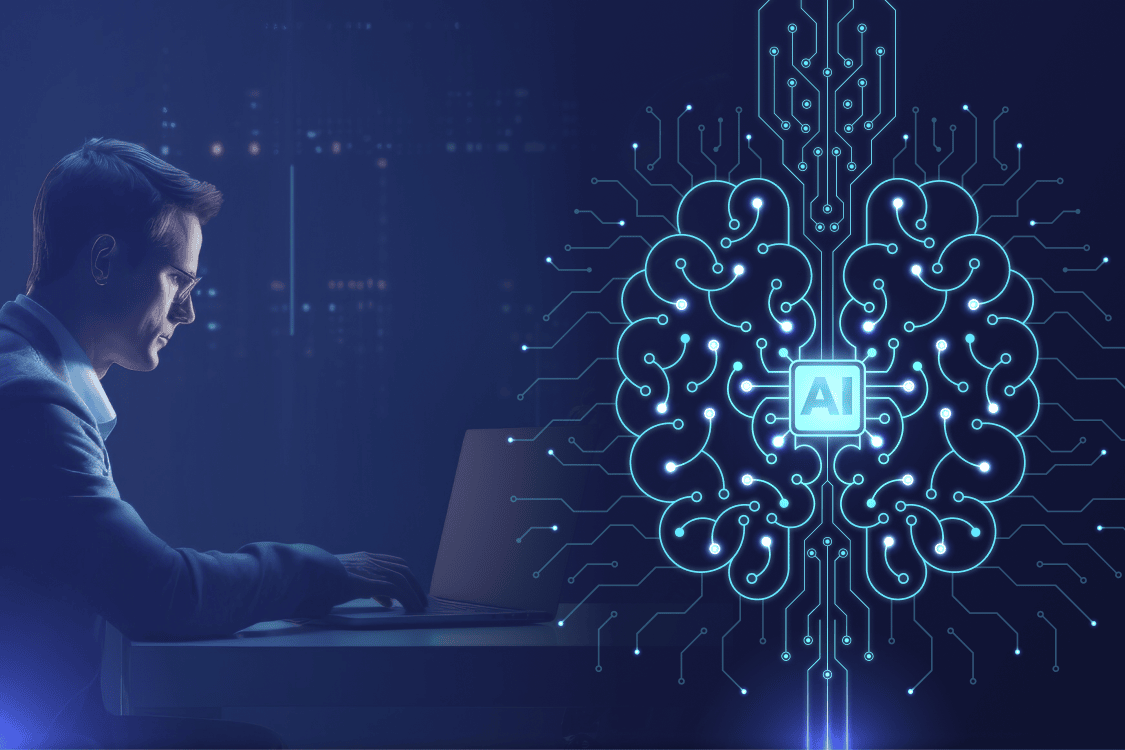Technology Trends

The world we live in today and the world we will live in tomorrow will be in many ways dependent on artificial intelligence (AI). Once a futuristic concept, we never thought AI could be so powerful. Today, AI is navigating solutions to some of our biggest challenges, taking us to places no human could reach. It is impacting healthcare, agriculture, cybersecurity and transportation. Artificial intelligence in businesses are changing how we work, protect data, grow our food and even travel across the globe.
One such advancement within location technology is being made by Mapsted, bringing change to how we navigate indoor spaces.
Starting with that. let’s explore five impactful AI developments and how they’re making a difference, starting with indoor navigation.


1. AI in Location Technology: The Work of Mapsted in the Precision and User-Focused Navigation
Navigating large, complex spaces such as airports, hospitals and malls presents a known but previously unresolved challenge. Today, with precision mapping and real-time adaptability, AI-driven location technology is solving this problem. In fact, a recent study projects that the indoor location market will hit $43.2 billion by 2030. This will be primarily fuelled by the rising demand for seamless, AI-powered wayfinding solutions. In this area, Mapsted will work very hard to build advanced indoor navigation systems that excel with its hardware-free approach. Unlike regular indoor mapping solutions that rely on beacons or Wi-Fi, the unique technology offered by Mapsted does not need these additional items, which in turn reduces cost and maintenance in the long run.
The application of artificial intelligence in businesses for indoor mapping allows Mapsted to offer 1-5 metre accuracy. This is done effectively with the help of AI algorithms which are excellent for multi-level spaces where precision is crucial. The technology is also adaptive in nature. The existing system moulds instantly to changes in the ecosystem whether it be a new layout or a construction zone, keeping the map current. Mapsted’s technology also provides a personalized experience to each user by suggesting customized routes, real-time updates or offers when the user is within a designated area. Mapsted’s work on location technology is a revolution like no other—it helps achieve precision and personalization simultaneously, creating a combination that is unique and sets a new standard for indoor navigation and user engagement.
2. AI Innovations in Agriculture
By 2050, the global population is projected to hit nearly 10 billion and that’s poised to put a strain on how we can feed them. In the field of agriculture, AI provides powerful solutions such as real-time data on soil health, weather patterns and knowledge of pest control. These insights empower farmers to make smart decisions on the best time to plant crops. This also helps to use resources effectively (including water and fertilizers). Drones can now scan fields, check crop health and send information to AI data models for supporting precise interventions.
With this complex level of information, insight and control, AI is set to aid in improving yield and mitigating waste. As a result, agricultural processes can become both low-cost and sustainable. We’ll soon be seeing fully autonomous farming systems, controlled with the help of AI and drone technology and responsible for everything from monitoring to harvesting crops.
3. AI in Cybersecurity
In this age of digital exchanges, cybersecurity tops the list of priorities for businesses and AI is a surefire integration that will help protect all related data. With the use of AI, it is possible to process large amounts of data quickly to surface security threats, such as ransomware or malware, in real time. As cyber threats become more sophisticated and prevalent, this is critical. AI is capable of predicting potential breaches and sensing unusual behaviour. As a plus, it can also respond in real-time faster than normal security systems.
Applications of AI in cybersecurity are aimed at automating risk analysis and vouchsafing business networks. This is achieved by discovering imperfections and stopping threats before they can cause any damage. This means easier control and safety with no additional human intervention – a stronger and more effective digital safety suite for businesses.
4. AI in the Metaverse
Hot on the tail of metaverse, an immersive digital universe, is AI’s contribution to powering up certain things in its development. AI makes the metaverse experience more real by providing lifelike avatars, real-time interaction and adding greater security. These virtual places are safe and detect fraud or identity theft by AI algorithms. Additionally, AI can individualize interactions, meaning that each interaction with a user is unique whether they’re shopping, socializing or learning in the metaverse.
As the metaverse continues to evolve, it has the potential to deliver safer, smarter, more engaging experiences—all powered by generative AI in businesses involved in building these immersive digital environments.
5. AI in Big Data
Big data and AI go hand in hand. With the explosive amount of information generated every second, AI algorithms help us make sense of data trends. The use of artificial intelligence in businesses like healthcare, finance and retail enables fast data processing, recognizing patterns and predicting them by observing trends. If you take healthcare as an example, AI can recognize patient patterns to forewarn a mass disease outbreak. In retail, AI can detect customer behaviour patterns and help businesses formulate demand forecasting-based strategies. This will result in both better outcomes and smarter decisions. Given the trend, big data and AI will be integrated like never before throughout all systems. With this integration, we will be able to make quicker and more precise decisions that are backed by data-driven insights.
Conclusion
AI innovations are ushering in a new era of possibilities across a range of fields—showing us the way indoors, keeping us safe, protecting our data and transforming how we grow our food. Futuristic ideas these technologies aren’t: they are practical solutions with measurable daily impacts on our lives. Companies like Mapsted are at the forefront of this innovative movement, redefining what is possible uniquely with precision and personalization in the location tech sector. Suffice it to say that AI is advancing toward a smarter and better-connected world that is sure to benefit all.
If you found this blog helpful, please read our blog on Where AI Meets Indoor Mapping: Discover the Next Frontier of Navigation or watch our video on Explore Mapsted’s Location Based Technology Solutions for Forward-Thinking Businesses to learn more.
Frequently Asked Questions
Q1. How is AI transforming the field of indoor navigation technology?
Ans. By studying sensor data and user patterns in real time, AI enables us to navigate highly accurately indoors. With hardware-free solutions, companies like Mapsted are leading this change towards more precise and user-friendly indoor mapping.
Q2. How does the role of AI in agriculture equate?
Ans. AI helps agriculture with data-driven insights on soil health, weather and pest control. It improves farmers’ efficient use of resources, maximizes yield, reduces waste and feeds a fast-rising population.
Q3. How does AI aid in improving cybersecurity?
Ans. AI improves cybersecurity by doing all of this much quicker and at a higher rate of accuracy than traditional methods. It is used to examine large datasets to understand the structure, predict breaches or react to a threat in real-time.
Q4. What is the importance of AI for the metaverse?
Ans. AI boosts the metaverse to come up with realistic and participatory virtual worlds, with certain safety features for the users. That allows the metaverse to get personal, manage digital identities and combat fraud. It makes the metaverse more secure and immersive.
Q5. How does AI handle big data?
Ans. Businesses use AI to process a huge amount of data, recognize patterns and predict the future of the data. This assists industries like healthcare and retail to function based on data. The benefits of artificial intelligence in businesses are clearer for efficient operations and understanding consumer behaviour at a deeper level.
